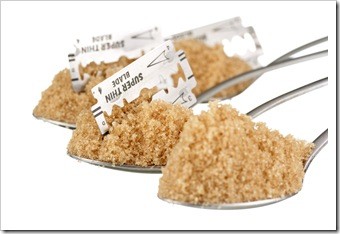Why Is Sugar So Addictive?
by Dr. Richard Huntoon
Read Why Is Sugar So Addictive? by Dr. Richard Huntoon to learn more about Advanced Alternative Medicine Center and our Chiropractic office in Building 400, Pooler Park, Pooler, GA.
We look forward to serving you! Call - 845-561-2225.
 Sugar is in nearly everything we eat. In the typical western diet, the amount of sugar that has been added to food products brings our consumption of the sweet stuff up to 22.7 teaspoons per day. In order to extend the shelf life of processed food, sugar is added. While we know that sugar is a huge contributor to weight gain, diabetes and heart disease, we still find it hard to resist. Our primitive ancestors that developed a taste for sugar were able to increase the amount of body fat that they had, which allowed them to keep alive during periods of famine. A study by researchers at Washington University found that we are naturally programmed from birth to crave sweet things. Human breast milk is very sweet due to the concentration of the sugar lactose, which means from day one we develop a sweet tooth.
Sugar is in nearly everything we eat. In the typical western diet, the amount of sugar that has been added to food products brings our consumption of the sweet stuff up to 22.7 teaspoons per day. In order to extend the shelf life of processed food, sugar is added. While we know that sugar is a huge contributor to weight gain, diabetes and heart disease, we still find it hard to resist. Our primitive ancestors that developed a taste for sugar were able to increase the amount of body fat that they had, which allowed them to keep alive during periods of famine. A study by researchers at Washington University found that we are naturally programmed from birth to crave sweet things. Human breast milk is very sweet due to the concentration of the sugar lactose, which means from day one we develop a sweet tooth.
There Is A Good Reason Why Sugar Is So Addictive
One study showed how even the mere expectation of sugar can affect our cognitive ability. Scientists discovered that when study subjects swished sugar water around in their mouths and then spit it out, they performed better on cognitive tests than the subjects who had swished water that had been artificially sweetened. When you consume sugar the hormone serotonin is released. Serotonin is released from the same area of the brain that responds to heroin and cocaine, which induces feelings of happiness and euphoria. It’s not always obvious where sugar is hiding in the foods we eat. The more sugar we get, the more we want. A sudden rush of sugar spurs the release of insulin, which causes the infamous “sugar crash” and makes us crave even more to combat it.
You Can Overcome An Addiction To Sugar!
However, it is possible to overcome an addiction to sugar. The key is to gradually use less where you can, such as in coffee or tea and in your breakfast cereal. You can also reduce or eliminate your consumption of soda and water down any fruit juices you may drink. After a while, your body will adjust to the taste. After a few months, if somebody suddenly gives you a coffee with sugar in it, you may find it tastes odd. Try to avoid buying desserts from the store, and if you make your own, reduce the amount of sugar that is given in the recipe. Many baked goods can use unsweetened applesauce as a substitute for 2/3 of the sugar required. Our evolution has made it difficult to resist sugar, but it’s not impossible, and the less sugar you eat, the better it will be for your overall health.
For Your Health,
Dr. Richard Huntoon
